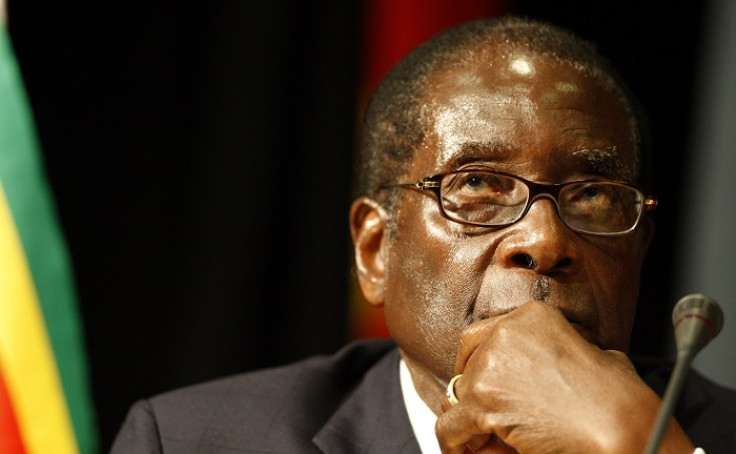Zimbabwe: President Mugabe Faked Flood to Create Cheap Labour for Rich Cronies, claims HRW

President Robert Mugabe has been accused of deliberately causing a flood in Tokwe-Mukorsi in southeast Zimbabwe in February, in order to serve his government's energy business interests in the area.
Human Rights Watch have alleged that the flood, which led to the mass evacuation of around 3,000 families, was artificially created to commandeer cheap labour for a sugar cane and ethanol project.
Last February, the Zimbabwe state media reported that the dramatic rise in flood waters had been caused by the partial collapse of a dam wall in Masvingo province, caused by torrential rain.
The flood was called a "natural disaster" by Mugabe and in an operation conducted partly by the Zimbabwean military, around 20,000 people were resettled in a transit camp 80 miles away in Nuanetsi Ranch, home to sugarcane fields that feed a large ethanol production facility.
Jointly owned by Mugabe's party, Zimbabwe African National Union - Patriotic Front, the sugarcane and ethanol project is also co-owned by Billy Rautenbach, a Zimbabwean businessman with the nickname "Africa's Napoleon".
Shortly after the evaculation, the families were informed they would be employed at the facility, and advised that distribution of their donated food was contingent in their work.
Yet in interviews conducted by Human Rights Watch with three senior employees of the Italian firm constructing the dam, Salini Impregilo, it is suggested that the dam wall was never damaged.
Instead, as reported by Christian Science Monitor, it is alleged that the flood was created by closing the sluice gates of the dam, which covers an area where two rivers merge, which led to high waters backing up and flooding out.
"What the media reported – that the dam wall collapsed leading to floods – is false information," said one of the senior Salini officers, all three of whom requested anonymity.
"The dam wall did not collapse and was never in danger of collapsing. With sluice gates and spillways open, it would have taken at least five years for the dam to fill up to capacity, but in this case they were deliberately closed because villagers in Tokwe-Mukorsi had resisted relocation."
Tiseke Kasambala, director of Southern Africa for Human Rights Watch, said: "These 3,000 families have been displaced under questionable circumstances and dumped in a place where their only alternative is to be cheap labour for Zimbabwe's ruling party."
The allegations were denied by local Zimbabwean officials and members of Zanu-PF, who won the reelection last July in a highly contested vote.
This week, Kudakwashe Bhasikiti, the provincial affairs minister for Masvingo province, banned five journalists from visiting the camp and surrounding area and charged them with bias.
"That is the most mischievous and ridiculous comment you can get from Human Rights Watch," Mr Bhasikiti said. "Flooding is not only experienced in Zimbabwe but even in the UK, Canada."
© Copyright IBTimes 2024. All rights reserved.






